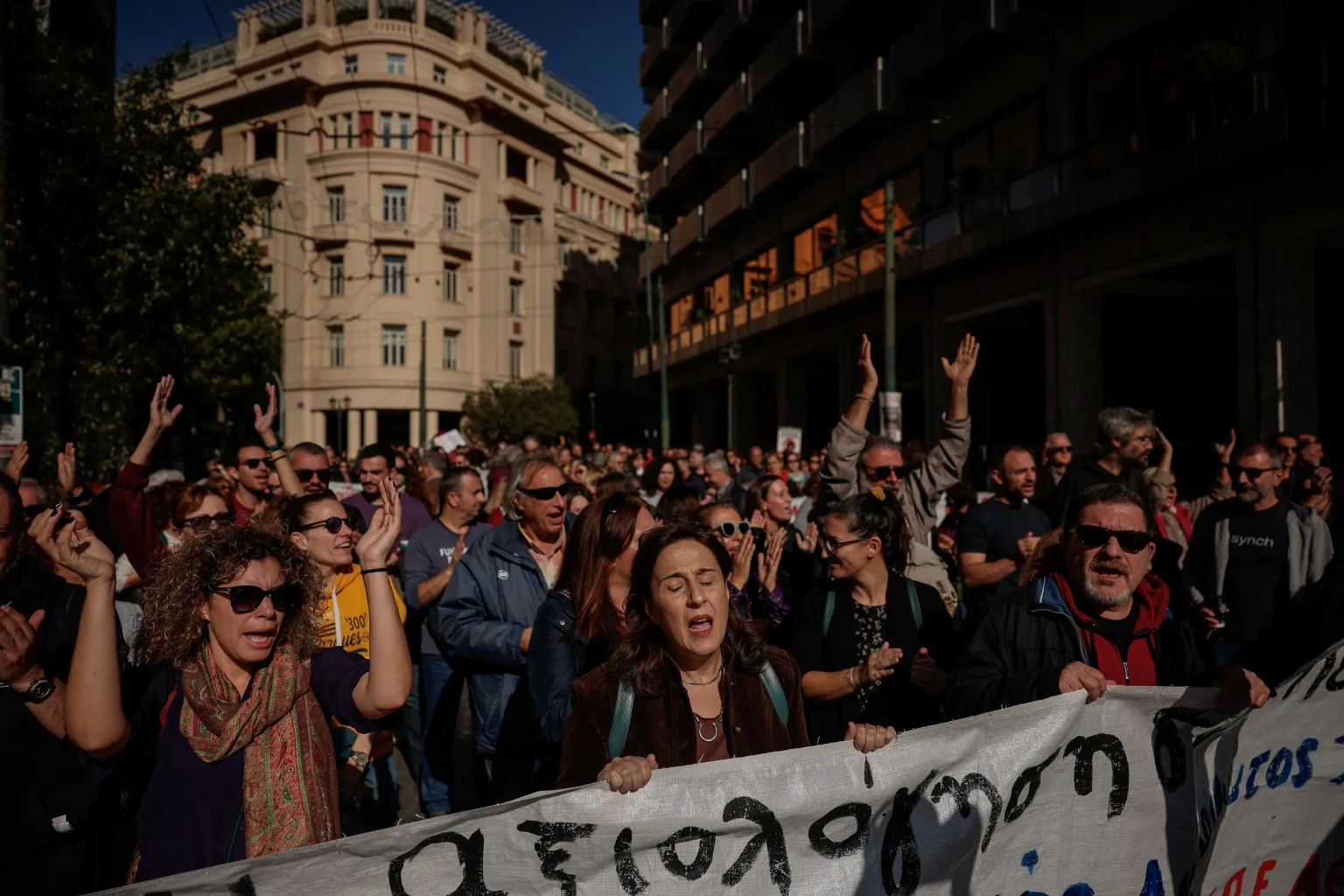STRIKE IN GREECE HALTS TRANSPORTATION- Greece 2.3% economic growth has outpaced other eurozones
A strike by Greek workers today has left ferries docked at ports, flights to and from the country grounded and trains at a standstill, with Greece’s largest trade unions demanding higher wages to cope with rising living costs.
Greece emerged from a 2009-2018 debt crisis that saw rolling cuts in wages and pensions in turn for bailouts worth some 290 billion euros. This year, economic growth, seen at 2.3%, has outpaced other eurozone economies.
The conservative government has increased the monthly minimum wage by a cumulative 35% to 880 euros ($974).
Seamen union representative Angelos Galanopoulos stated that even after the latest wage increases, there was a gap that kept getting wider because of price hikes and inflation that affected energy and medicines adding that Privatisations in health and education also result in bigger problems for low incomes.
The one-day strike halted trains across the country, while bus and metro workers in Athens held work stoppages.
Greece’s minimum salary in terms of purchasing power was among the lowest in the European Union in January, behind Portugal and Lithuania, data from EU’s statistics office Eurostat showed, and the average salary is recorded at 1,342 euros a month.

